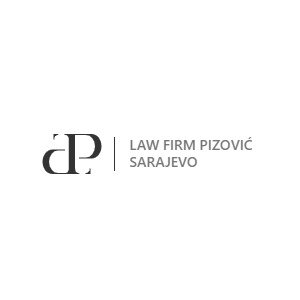Best Nonprofit & Charitable Organizations Lawyers in Bosnia and Herzegovina
Share your needs with us, get contacted by law firms.
Free. Takes 2 min.
Or refine your search by selecting a city:
List of the best lawyers in Bosnia and Herzegovina
About Nonprofit & Charitable Organizations Law in Bosnia and Herzegovina
In Bosnia and Herzegovina, nonprofit and charitable organizations play a crucial role in supporting social, cultural, and economic activities. These organizations are regulated under specific laws that govern their registration, operation, and financial management. Due to the country's unique administrative structure, these laws can vary, particularly between the Federation of Bosnia and Herzegovina and Republika Srpska. Typically, nonprofit organizations include associations, foundations, and charitable entities, each subject to distinct legal requirements and obligations.
Why You May Need a Lawyer
There are several situations in which individuals or organizations may require legal assistance in the realm of nonprofit and charitable organizations in Bosnia and Herzegovina. These include:
- Establishing a new nonprofit organization, which requires compliance with various legal and administrative requirements.
- Navigating tax-related issues, including obtaining tax-exempt status and ensuring compliance with applicable tax laws.
- Understanding the legal obligations of board members and officers, including accountability and governance structures.
- Addressing issues related to fundraising activities and compliance with legal restrictions on funding sources.
- Resolving disputes within the organization or with external parties.
- Adapting to changes in local laws and regulations that may impact the operations of nonprofits.
Local Laws Overview
Key aspects of local laws relevant to nonprofit and charitable organizations in Bosnia and Herzegovina include:
- Registration: Nonprofit organizations must register with the relevant entity's ministry responsible for justice or similar authority. The registration process involves submitting documents such as statutes and information about founders.
- Governance: Organizations must adhere to governance standards, including holding regular board meetings and maintaining financial records.
- Taxation: Nonprofits may be eligible for tax exemptions but must comply with specific reporting requirements to maintain this status.
- Fundraising: There are legal requirements regarding fundraising activities, particularly about transparency and permissible sources of funds.
- Dissolution: Legal procedures must be followed for dissolving nonprofit organizations, including settling debts and distributing remaining assets appropriately.
Frequently Asked Questions
What is the process for registering a nonprofit organization in Bosnia and Herzegovina?
The registration process involves submitting the organization's founding documents, statutes, and information about founders to the competent authority in the respective entity or canton.
Are nonprofits in Bosnia and Herzegovina tax-exempt?
Many nonprofits may qualify for tax exemptions on certain activities, but they must comply with the reporting standards specified by tax authorities to maintain this status.
What legal obligations do board members have in nonprofit organizations?
Board members are legally obligated to act in the organization's best interest, ensuring compliance with governing documents and regulations.
Can foreign nonprofits operate in Bosnia and Herzegovina?
Yes, foreign nonprofits can operate but must register within the country and comply with local laws applicable to their operations.
How can an organization fundraise legally?
Organizations must follow the legal frameworks for fundraising, including transparent financial practices and adherence to restrictions on funding sources.
What are the reporting requirements for nonprofits?
Nonprofits must maintain financial records and submit annual reports that outline their activities and financial status to the appropriate governmental bodies.
How are disputes within a nonprofit resolved?
Disputes may be resolved through internal governance mechanisms, mediation, or legal proceedings, depending on the nature and severity of the issue.
What are the steps for dissolving a nonprofit in Bosnia and Herzegovina?
Dissolution requires a formal decision by the organization's members or founders, settling all obligations, and distributing remaining assets as per the law.
Are there advocacy organizations for nonprofits in Bosnia and Herzegovina?
Yes, several advocacy and support organizations exist to provide resources, training, and guidance to nonprofits operating in the country.
Do nonprofit laws differ between entities within Bosnia and Herzegovina?
Yes, nonprofit laws can differ between the Federation of Bosnia and Herzegovina, Republika Srpska, and Brčko District, reflecting the administrative divisions of Bosnia and Herzegovina.
Additional Resources
If you need further assistance or information about nonprofit and charitable organizations in Bosnia and Herzegovina, consider consulting the following resources:
- Ministry of Justice of Bosnia and Herzegovina
- Entity-level nonprofit associations and foundations
- Local legal aid organizations specializing in nonprofit law
- OSCE Mission to Bosnia and Herzegovina for support on civil society issues
- Chambers of Commerce for guidance on financial and legal compliance
Next Steps
If you require legal assistance regarding nonprofit and charitable organizations in Bosnia and Herzegovina, begin by consulting with a legal professional specializing in this field. They can provide tailored advice based on your organization's needs. Consider reaching out to local bar associations for recommendations on qualified attorneys. Additionally, ensure you understand your obligations and rights under the law to safeguard your organization's operations, governance, and sustainability.
Lawzana helps you find the best lawyers and law firms in Bosnia and Herzegovina through a curated and pre-screened list of qualified legal professionals. Our platform offers rankings and detailed profiles of attorneys and law firms, allowing you to compare based on practice areas, including Nonprofit & Charitable Organizations, experience, and client feedback.
Each profile includes a description of the firm's areas of practice, client reviews, team members and partners, year of establishment, spoken languages, office locations, contact information, social media presence, and any published articles or resources. Most firms on our platform speak English and are experienced in both local and international legal matters.
Get a quote from top-rated law firms in Bosnia and Herzegovina — quickly, securely, and without unnecessary hassle.
Disclaimer:
The information provided on this page is for general informational purposes only and does not constitute legal advice. While we strive to ensure the accuracy and relevance of the content, legal information may change over time, and interpretations of the law can vary. You should always consult with a qualified legal professional for advice specific to your situation.
We disclaim all liability for actions taken or not taken based on the content of this page. If you believe any information is incorrect or outdated, please contact us, and we will review and update it where appropriate.
Browse nonprofit & charitable organizations law firms by city in Bosnia and Herzegovina
Refine your search by selecting a city.













